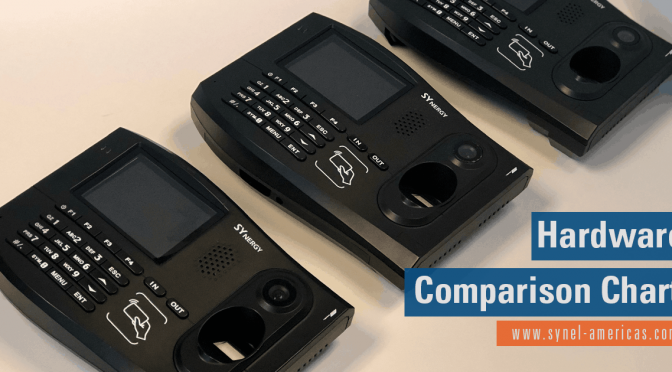There are many benefits of tracking employee hours besides staying compliant with the law. We are not only breaking down why it’s beneficial and important to have employees clock in and out – even salaried employees – but also how to do it easily.
The Federal Labor Standards Act (FLSA) requires employers to keep track of all non-exempt employee hours, but does not state how. A lot of employers have hourly employees clock in and out since their shifts and hours sometimes vary, but salaried employee hours aren’t always tracked that closely since it’s assumed they work a 40-hour week, it’s not legally required, and they don’t always receive overtime. Whether you’re using paper or an actual time and attendance system to track all these hours, the employer is the one that is responsible to stay compliant with the FLSA.
The Why’s
- It’s a good way to be efficient with your manpower so you can see trends.
- With this data you can look at seasons or departments to see where and when people are working the most. Analyzing and adjusting based on this info can allow you to use your workforce more efficiently, in turn saving time and money. For manufacturing, a warehouse, or company that needs temp help is where it’s the most helpful. Not necessarily a typical office environment.
- Keep track of and make sure your employees are working as expected; or even making sure they’re not burning themselves out and keeping a good balance.
- Whether your employees are on-the-go on working in the office, tracking their hours allows for transparency. It makes it easy for employers to see if their employees are working too much or too little. Work-life balance is just as important as getting all your work done, so if an employee is working too much overtime, they may need to take a step back. Tracking employee hours shouldn’t only be viewed as the employer keeping track in a negative way, it could positively affect employees as well.
- Tracking employee hours can help you stay compliant
- It can be important and beneficial in a warehouse environment where injuries and accidents can happen and employers have to deal with workers’ compensation issues. If ever needed, you can prove if someone was working or not if you have documentation that they were clocked in. Even in a typical office environment this can be helpful just to stay compliant; if you keep track of employee hours on a day-to-day basis, you won’t have to worry about records if something ever came up.
The How’s
There are many hardware and software time and attendance options that companies can choose from. All of our hardware and software solutions are compliant with the FLSA and can also be programmed to be compliant with your internal policies.
- Mobile attendance
- Mobile attendance software is great for on-the-go employees. Even if you don’t have a typical office environment or hours, your employees can keep track of their time at their convenience while the employer can be confident that their employees are working when they’re supposed to and they are able to stay compliant.
- Wall mount time clocks
- We have both Biometric and Badge/PIN hardware devices that can suit your workforce environment’s needs. You can compare all of our hardware solutions next to each other to find the best fit.
- Utilize software that is also employee friendly
- Our cloud-based software XactTime has both administrative and employee views.
- Employees can track their hours worked, PTO accrued, time-off requests, etc. This will make your admins more efficient and available for other work as well when your employees readily have access to the information important to them.
- Cloud-based systems
- If you have a cloud-based T&A system like XactTime, there’s no licensing fees or internal hardware costs. These cloud-based systems operate quickly and easily to host your time-tracking solution.



